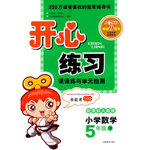题目内容
The way ______he looks at problems is wrong.
A. which B. whose C. what D./
D
解析:
在way、distance、direction等词后的定语从句中,常用that来代替“in (或其他介词)+which”、when或where,而that常可省略。

 开心练习课课练与单元检测系列答案
开心练习课课练与单元检测系列答案There are many similarities between the teacher’s work and the actor’s. However, the fact that a good teacher has some of the gifts of a good actor __1__ mean that he will indeed be able to act well on the stage; for there are very important differences __2__ the teacher’s work and the actor’s work. The actor has to speak words which he has learned __3__; he has to repeat exactly the same work each time he plays a certain part; __4__his movements and the way he uses his voice are usually fixed __5__. What he has to do is to make all these carefully learned words and actions seem natural on the stage.
The good teacher works in __6__ different way. His audience takes an active part in his play, they ask and answer question, they __7__ orders, and if they don’t understand something, they say so. The teacher therefore has to suit his act __8__ the need of his audience which is his class.
I have known many teachers who were fine actors in __9__ but were unable to play a part in a stage-play because their brains would not keep discipline; they could not keep strictly to __10__.
| A. not | B. don’t | C. doesn’t | D. do |
| A. among | B. with | C. from | D. between |
| A. by mind | B. by the mind | C. by heart | D. by the heart |
| A. but | B. if | C. although | D. even |
| A. ago | B. before | C. later | D. long |
| A. very the | B. very a | C. quite a | D. quite the |
| A. listen | B. hear | C. keep | D. obey |
| A. for | B. with | C. to | D. of |
| A. class | B. stage | C. life | D. action |
| A. what another has written | B. what another had written | ||
| C. that another has written | D. which another had written | ||
It must have been around nine o’clock when I drove back home from work because it was already dark. As I came near to the gates I turned off the head lights of the car so as to prevent the beam from swinging (摆动) through the window and waking Jack, who shared the house with me. But I needn’t have done so. I noticed that his light was still on, so he was awake anyway—unless he had fallen asleep while reading. I put the car away and went up the steps.
Then I opened the door quietly and went to Jack’s room. He was in bed awake, but he didn’t even turn towards me.
“What’s up, Jack﹖” I asked.
“For God’s sake, don’t make a noise,” he said.
The way he spoke reminded me of someone in pain who is afraid to talk in case he does himself serious injury.
“Take your shoes off, Neville,” Jack said.
I thought that he must be ill and that I had better give way to him to keep him happy. “There is a snake here,” he explained. “It’s asleep between the sheets. I was lying on my back reading when I saw it.I knew that moving was out of the question. I could not have moved even I’d wanted to.” I realized that he was serious. “I was depending on you to call a doctor as soon as you came home,” Jack went on. “It has not bitten me yet but I dare not do anything to upset it. It might wake up. I’m sick of this,” he said.“I took it for granted that you would have come home an hour ago.”
There was no time to argue or apologize for being late.I looked at him as encouraging as I could and went to telephone the doctor.
【小题1】When he got home, Neville found that _____.
| A.Jack had fallen asleep while reading | B.Jack had been reading for some time |
| C.Jack’s light was not turned off | D.Jack was ready to answer the doctor |
| A.impossible | B.no problem | C.no doubt | D.without difficulty |
| A.Neville and Jack lived in the same house. |
| B.Neville thought that Jack had fallen ill. |
| C.Neville really believed that Jack was not making a joke. |
| D.Neville refused to argue or to make an apology for being late. |
| A.asked Neville to take off his shoes |
| B.made a gesture to show the presence of the snake |
| C.was afraid to upset the snake sleeping between the sheets |
| D.behaved strangely as if he were badly hurt |
| A.7 p.m. | B.8 p.m. | C.9 p.m. | D.6 p.m. |